Ofer Bavly's Journal: Witness to the Ethiopian Exodus
Permanent linkOfer Bavly, director general of JUF's Israel office, just returned from Ethiopia, the source of a modern-day exodus of impoverished Jews seeking a better life by making aliyah. There he and the group he travelled with – which included several Chicagoans – were immersed in the people, their stories, and the work of JUF's partner, the Jewish Agency for Israel (JAFI), which is aiding the immigrants at every stage of their journey.
Below is Ofer's journal:
Monday, Feb. 11, 2013 11:04 a.m.
At the JAFI office, Gondar
Families are interviewed before clearance to make aliyah. A nurse will give them inoculation shots. The family interviewed when we were there will go within a few weeks. The family is made up of a Christian father, his wife and three kids. The wife comes from a Jewish family who converted to Christianity in the early twentieth century. The verification determined that she is of Jewish descent and therefore eligible for aliyah, giving eligibility to her husband and children.
However, a problem arises when it turns out that the eldest son, 16, is in fact from a different mother, a Christian. He is therefore the child of a Christian father and mother – and ineligible for aliyah. Unless...
Unless his biological mother passed away. The father will claim it is so, and a court will have to approve it. Then, Asher Saiyum, JAFI representative in Gondar, will try to convince Israeli authorities to allow the son to make aliyah with his family on a humanitarian basis and despite his ineligibility.
*****
Monday, Feb. 11, 2013 1:35 p.m.
Gondar – piazza
*****
Monday, Feb. 11, 2013 1:35 p.m.
Visiting Jewish Homes
Gondar. Visiting homes of families awaiting their eligibility to go to Israel. The poverty is the first thing that strikes you. These are mud huts, baked in the sun, rented for $20 a month (an exorbitant expense) from landlords out to make a buck. In a mud hut of ten feet by eight, 5 people live together. The common kitchen serving seven families is another hut made of three metal planks serving as walls and a tin roof above. The kitchen consists of an open fire on which bread is baked. The toilet is a similar hut in the yard with no door and no running water nor sewer. The Jewish Agency, funded by JUF, assists the poorest olim (Jews making aliyah) with a small subsidy to help them pay the rent. Some of them have been waiting for seven or even ten years for the aliyah certificate.
*****
Monday, Feb. 11, 2013 2:27 p.m.
Fenter and Seramle
Jewish villages outside Gondar. The Jews left these villages in 1991 and local residents moved in.
*****
Monday, Feb. 11, 2013 3:21 p.m.
Ambober
The former Jewish village of Ambober, which was home to over 150 Jewish families. The school was a Jewish school. Now that there are no more Jews here, the village is a Christian one and the school is a state school teaching 1150 children in two shifts. While one shift studies at school, the other shift works in the fields, helping to provide for their families.
Across the street from the school stands the synagogue with the Star of David on the roof.
In the school, there are no blackboards and much of the material is written on the walls.
*****
Monday, Feb. 11, 2013 4:38 p.m.
Report from Gondar
The JAFI mission to Ethiopia began with an overnight flight to Addis Ababa. On the flight with us was an Ethiopian prisoner transported to Ethiopia by two Israeli plainclothes policemen. Shackled in the wrists and ankles and gagged, he nevertheless tried to throw a tantrum, calming down only once we were in the air.
Gondar airport is a quaint building and we walked from the plane to the tiny terminal where the group was briefed by JAFI's Micha Goldman, who was the agency's man on the ground for Operation Solomon.
*****
Tuesday, Feb. 12, 2013 8:22 a.m.
Shacharit prayer, Gondar synagogue
Our mission joined the morning prayer at the Gondar synagogue. Hundreds of men covered in talitot and wearing tefilin, hundreds of women covered in white linen cloth, many of them with babies strapped to their backs, prayed in this synagogue without walls. The ground is sand, the roof is metal sheet, the congregants sit on long backless metal benches. A curtain separates men from women. On the bimah, a rabbi leads the prayer in Amharic and then in Hebrew. The congregation sings loudly and they all know the prayer text.
These are the falashmora. Their forefathers converted to Christianity at the turn of the 20th century. They now wish to return to Judaism and make aliyah to Israel. Asher, the JAFI envoy, tells them twice a month that many of them, whose Jewish roots are in serious doubt, will probably not be approved for entry by the Israeli government. The concern is that many will present themselves as Jewish, simply to improve their conditions of life. Once someone is approved, they can then bring in their extended family on the basis of "family reunification." Their relatives might then bring THEIR own relatives and the wave could turn into a huge migration.
It is sad to see many of these faces, hopeful of making it to the Promised Land and yet knowing that their chances are slim.
Our mission spent time with the children, bringing them stickers, markers, coloring books and soap bubbles. The kids were ecstatic, enjoying the visit and adoring the cameras pointing at them.
*****
Tuesday, Feb. 12, 2013 8:29 a.m.
JCC Kitchen
Feeds the youngest kids and pregnant mothers
*****
Tuesday, Feb. 12, 2013 8:39 a.m.
At the JCC kindergarten
The kids learn Hebrew with Israeli volunteers spending three months here on JAFI's "TEN" program. They sing Hebrew nursery rhymes!
*****
Tuesday, Feb. 12, 2013 9:16 a.m.
The Israeli School
The school in Gondar, where kids of all ages learn Hebrew. In September there were 700 students. Thanks to aliyah, that number has come down to 300.
JAFI pays for everything in this school; staff (many of whom are brought in from Israel), books and materials.
The teacher in this picture is Sarah, wife of Asher, the JAFI representative in Gondar.
*****
Tuesday, Feb. 12, 2013 9:30 a.m.
Gondar School
Computer class
*****
Tuesday, Feb. 12, 2013 9:38 a.m.
Gondar School
Learning a Hebrew song about dreams coming true.
*****
Tuesday, Feb. 12, 2013 10:15 a.m.
Hebrew School
The teachers used to be Ethiopians who had learned a little bit of Hebrew but couldn't even converse in it. In 2010, JAFI took over the school from NACOEJ.
When Asher, a native of Gondar who came to Israel many years ago, was sent here from JAFI, he replaced all the Hebrew teachers with Israeli volunteers, some of them Ethiopian born. Some are TEN volunteers.
130 of the 300 students presently here are not approved for aliyah. JAFI decided that anyone already in the school when JAFI took over would not be asked to leave, but their families know that they will not make aliyah. However, the school does not enroll new students so as not to give false illusions of going to Israel.
When the olim at this school go to Israel, JAFI will give the school as a present to the Ethiopian government.
It is amazing to see these kids, some of whom came from tiny villages far away, who have been waiting in Gondar for years to go to Israel. They learn Hebrew, they sang in Hebrew, and the walls of their classrooms are covered with pictures of Israel. Israeli flags and Hebrew words are taped on every wall.
Ghazion is a 15-year-old student we met in a classroom. Each student was asked to tell their dream. All said they wanted to make aliyah. One said he would be a soccer star in Israel. Another said he wanted to be a doctor in Israel. One bright girl whose teacher said was the best in the class wanted to be a scientist in Israel. They all spoke in Amharic, but Ghazion wanted to speak Hebrew. He said he dreams of being a pilot for the Israeli Air Force. He said you need strength and courage, and he has both. He also said that he is aware of the tough competition, with 500 people competing for one position, but he will try and he will succeed . He said it all in perfect Hebrew.
Later I found out from Asher that Ghazion was rejected and will not be making aliyah because his family could not prove its Judaism. Ghazion knows this. But he continues to dream.
*****
Tuesday, Feb. 12, 2013 3:45 p.m.
Asher
Asher, the JAFI representative in Gondar, told us his personal story.
He grew up one of seven siblings in a small village outside of Gondar. As a child he never went to school, working instead on the family farm as a shepherd. At first he tended sheep, and when he was 10 he "graduated" to cows, a responsible position for a farmer.
When Asher was 12, the family was told to prepare to go to Israel. It was a big secret because Ethiopia was a communist country at the time and emigration was illegal.
The day came when someone from the Jewish Agency told the villagers to sell their property and pack up for the march to Sudan. Asher was sad to be separated from his cows, but his father told him that God would lead them to Jerusalem, just as he had led Abraham to the land of Canaan.
Nobody in the village had ever seen a map, and they had no idea where they were going. Non-Jewish guides showed up and charged them 70 birr (about $35) per person to take them to Sudan. That was an exorbitant sum, but they felt that they would be realizing their dream.
On the day that was set by the guides, hundreds of Jews showed up at a pre-determined meeting point. The guides said there were too many. It would be dangerous to march all together. Hundreds had to return to their village and wait for the next march. Asher's father volunteered to stay back with his family, but asked that his eldest son be allowed to go, as his wife was pregnant and there was fear that if she stayed back she would miss the next march.
Ten days after the first group left, it was time for 12-year-old Asher and his family to go. They packed water, food and a shovel on their donkey. When Asher asked his father about the shovel, he was told it would be used to bury those who would die on the road.
The group of 150 marched to Sudan. Some died on the way. They would march at night and hide during the day, and they were warned not to utter a word on the march as they would be heard and denounced to the police.
The march took three weeks and they walked hundreds of miles. When they arrived at the Sudanese border, they were arrested by Sudanese soldiers. The Jews denied being Jewish and were placed in a refugee camp. They ended up staying at the camp for ten months. When Asher's father tried to find out what had happened to the first group and his eldest son, he was told that they had been arrested inside Ethiopia and put in Gondar prison. They ended up spending three years in jail before being released and going to Israel.
When Asher arrived in Israel, he and his family were placed in a JAFI absorption center. At thirteen, for the first time in his life, he attended school. At 18, Asher completed his matriculation exams, graduating from high school. His natural path was to go to the army. He asked to be a combat soldier in the paratrooper brigade. The army had other plans for him, so he negotiated with them and they allowed him to go to college first. He studied physical education and graduated. It was then time to enlist... in the paratroopers.
Asher served for three years, training paratroopers in a combat unit. He then got his undergraduate degree and started working for JAFI, receiving more and more responsibilities. He directed two absorption centers and, two years ago, was sent to Gondar to run the JAFI operation here.
About six thousand Ethiopian Jews made it through Sudan in Operation Moses. Two thousand died on the way, trying to realize their dream and that of their forefathers, to arrive in Jerusalem. The Jewish Agency, with the generous support of the Jewish communities in America, made the dream come true for thousands.
*****
Tuesday, Feb. 12, 2013 4:34 p.m.
Walaka Village
We visited Walaka Village near Gondar, which used to be a Jewish village. After all the Jews left, others came in and continue to live in what tourists know as the Jewish Village. They sell little trinkets with the Star of David to all visitors.
Outside the village we visited the Jewish cemetery. The oldest tombstones date back about 250 years.
The Jewish Agency placed a memorial sign and a traditional pile of stones to commemorate the 2000 Jews who died making aliyah through Sudan. By the memorial, we recited the Kadish and prayed for their souls. It was a moving moment of remembrance and reflection.
The tombs carry inscriptions in Amharic and a Hebrew word here and there, but one tombstone carried a whole inscription in Hebrew, giving the name of the deceased who passed away in 1990 and then describing him thus: "He was a simple man who always helped those who were really poor. But what can you do, at the end he died."
*****
Wednesday, Feb. 13, 2013 7:14 a.m.
I asked Kim Shwachtman from Chicago to write this one.
Begin forwarded message:
As I thought about our entire day today, words like overwhelming and incredible come to mind.
I'm exhausted beyond belief, but I also feel very energized. I think back to our experience this morning and the sight of a whole community of Ethiopian men, women, and children davening at the Jewish Agency's Jewish Community Center. Amazing!
And then to sit in on the childrens' classrooms and the adult classrooms and watch the dedicated Israeli teachers teach their Hebrew lessons and computer skills classes to these students. It filled me with tremendous pride to be a Jew and to see the passion and dedication of those teachers who were so clearly committed to helping their students prepare to make aliyah.
I was so moved to learn how the school got started and why the clinic was moved to Gondor. It truly begins with transmitting our Jewish values of treating people with dignity and compassion. Thank goodness for people like Asher, who made his vision for the school a reality.
Then, later in the day, to see the vast mountainous landscape and try to grasp what it must have been like to be a family making the daunting and dangerous journey through the night, for weeks, until they reached Sudan, with the hope of eventually getting to Israel. It was hard to imagine.
I thought the day ended on an incredibly powerful note, as we listened to young adult volunteers from Israel who have come to Ethiopia to do tikkun olam. It was clear from the expressions on their faces and from the words they spoke that in just the three months' time that these volunteers have been working with those in need and at risk, it has been a life-changing experience for them. This new Jewish agency program is doing far more than reinforcing the Jewish identities of these young adult volunteers. This experience is allowing them to see and feel the impact of their work, and they know they have been an important part of helping to change the future lives of those they are helping. What a priceless reward!
*****
Wednesday, Feb. 13, 2013 12:15 p.m.
In Addis Ababa
In Addis, we visited the American Jewish Joint Distribution Committee (another JUF partner agency) transit station, where the 73 new olim are awaiting their flight tonight. They arrived from the Gondar region, a 14-hour drive, by buses. It took two days. There are elderly men and women, obviously dazed and confused, yet happy, knowing that something very big will happen tonight. The children are very excited, spending their time playing ping pong and table soccer, or playing on the swings.
The olim spent the night here and are preparing themselves. Our mission gave out brand new clothes to everyone, which they will wear for the flight tonight.
In the pictures you will see our Chicago Federation members giving out clothes to the new olim.
*****
Wednesday, Feb. 13, 2013 12:18 p.m.
At the Israeli Embassy
At the Israeli Embassy in Addis Ababa. JAFI's Micha Feldman, who was point man for Operation Solomon, tells us the story of the operation to airlift 14,000 Ethiopian Jews.
*****
Wednesday, Feb. 13, 2013 10:07 p.m.
Walking to the Israeli Embassy
Without a doubt, the most moving moment of the day was walking with the new olim from the JDC transit station to the Israeli Embassy, where they were welcomed and where they boarded the bus for the airport.
We saw them loading their suitcases and few personal belongings onto a truck and then the procession passed through the neighborhood and to the embassy. Hundreds of locals lined the alley and waved goodbye. They had seen these processions many times and knew that the Jews, dressed in new clothes, were going to their new home.
The procession walked and sang "Am Yisrael Chai." For us, this was a tearful moment as each and every member of the mission tried to imagine what it was like for these 73 olim to leave everything they knew behind and embark on what is literally a life-changing adventure.
When we reached the embassy, we gathered them around us and Debbie Tananbaum from New York greeted them on behalf of our mission. "We are one people, standing together, and we wish you a safe journey home," said Debbie. Asher translated her words to Amharic, and when he said the words "we are one people," the new olim burst in spontaneous applause.
We saw them off to the bus and would meet them later, at the airport.
*****
Wednesday, Feb. 13, 2013 10:12 p.m.
At the Ambassador's Residence
Our mission's final dinner was hosted by Blainish Zabaydeh, Israel's ambassador to Ethiopia.
Blainish, daughter of a "Kess of Kesses" (Chief Rabbi of the Jewish Community of Ethiopia) came to Israel at the age of 17 from Gondar. She is the first Ethiopian-born diplomat in Israel, the first Ethiopian-born Israeli ambassador, and the first Ethiopian-born ambassador from anywhere in the world to be sent to Ethiopia.
Blainish gave us a briefing on Israeli-Ethiopian relations and told us her personal story, one of achievement and success. She is a role model for all Ethiopian olim, who see her as a hero and as representing the highest level of achievement for any new immigrant from Ethiopia.
*****
Wednesday, Feb. 13, 2013 10:17 p.m.
At the airport
At Addis airport, our mission members sped the long wait talking to the new olim and playing with the kids. We brought crayons, soap bubbles and coloring books, and converted the gate area at the airport into a makeshift and very happy kindergarten.
*****
Thursday, Feb. 14, 2013 5:45 a.m.
Arriving in Israel
The new Israelis have arrived home. The flight arrives at 3.30 a.m., so everyone is slightly dazed, but their faces tell the story: They are very, very happy.
At the Ministry of the Interior office inside the airport, we join them as they are processed and receive their Israeli ID and their "absorption packet," which includes explanations of all the benefits they will receive, as well as a cash stipend to keep them until they open a bank account and receive, on March 1, their first monthly stipend for new immigrants.
We completed our journey. It was an exciting mission, opening our eyes, our minds and our hearts to a part of the world where our fellow Jews spent centuries, and learning about the fantastic way in which JAFI, with JUF funding, is bringing our sisters and brothers home.
It was an emotional journey as we traced the path of the Ethiopian Jews from the villages to the city and finally to their flight to Israel. Seeing their faces as they marched to the embassy in Addis Ababa, dressed in "Shabbat clothes," was unforgettable. Their gratitude to the Jewish communities in America was obvious as they realized that we were standing with them and supporting them, and uniting them with their fellow Jews in Israel.
And for the members of our mission, it was also a chance to meet and get to know each other, caring and generous Jews from Chicago, New York, Detroit, Atlanta and even Canada, exploring our Judaism, our background and the things that bind us together as we visit our sisters and brothers in a far away land.



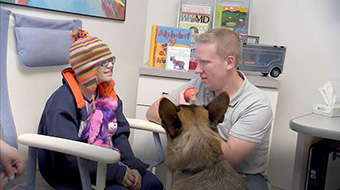
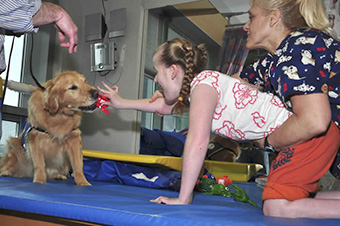
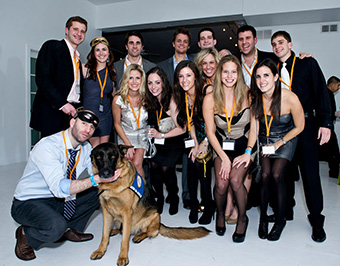
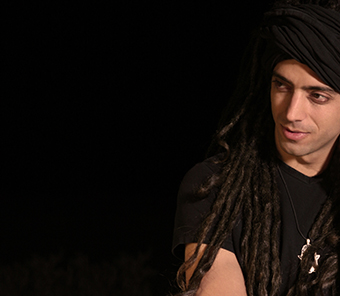
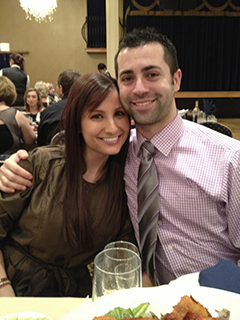

.jpg)



